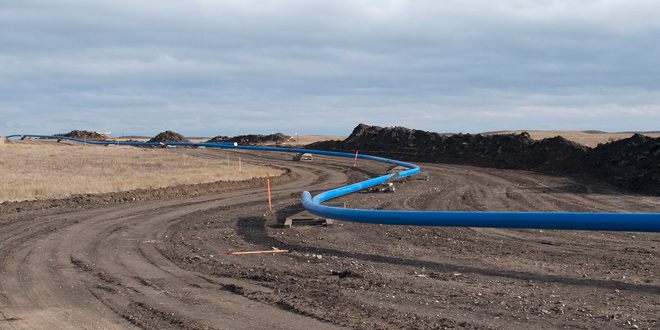By William Opalka
FERC on Wednesday rejected Algonquin Gas Transmission’s request to exempt gas-fired generators from competitive bidding under capacity release rules, another blow to those seeking to increase New England’s gas infrastructure (RP16-618).
The proposal to amend Algonquin’s tariff was an offshoot of the company’s proposed Access Northeast pipeline. Electric distribution companies Eversource Energy and National Grid — which are partnering with Algonquin on the pipeline — sought the exemption to ensure the capacity they purchased would be used to fuel gas-fired generators.
The EDCs hoped to release capacity to gas generators as prearranged “replacement” shippers. FERC rules allow such preferences as long as the replacement shipper matches the highest bid submitted by any other bidder. The proposal would have limited that bidding to gas-fired generators, excluding those who might value the fuel more for winter heating.
FERC held a technical conference on the matter in the spring. (See Utilities Seek OK for Gas Releases to Generators at Technical Conference.)
The proposal was opposed by numerous merchant generators, including NextEra Energy, Exelon and Calpine, which said they had found cheaper alternatives to ensure fuel supplies under ISO-NE’s Pay-for-Performance capacity incentives, including installation of dual-fuel capacity and contracts with natural gas marketers and LNG suppliers.
“Merchant generators are not asking you for this capacity, and you need to ask yourself why,” Calpine told FERC. The company estimated firm capacity would cost it $25 million annually, or half a billion dollars over a 20-year commitment. It said it could guarantee the same level of service by investing $50 million in a fuel oil tank.
Other opponents argued that the proposal was premature because no state had approved a state-regulated electric reliability program.
“Neither Eversource nor National Grid provided a persuasive explanation for why the ability to release capacity to a prearranged replacement shipper under our existing regulations is not sufficient to meet their needs,” FERC ruled. “Moreover, neither party sufficiently explained why a generator that needed the capacity to obtain the natural gas supplies necessary to generate electricity during a period when Algonquin’s capacity is constrained would not match a higher bid.”
However, the commission said its ruling was “without prejudice to Algonquin developing other more targeted, justified proposals for consideration.”
The commission also granted Algonquin’s request to exempt from bidding an EDC’s capacity release to third parties managing capacity on an EDC’s behalf.
“By permitting capacity holders to use third-party experts to manage their natural gas supply arrangements and their pipeline capacity, [asset management arrangements] provide for lower gas supply costs and more efficient use of the pipeline grid,” the commission said. A compliance filing on this proposal is due in 30 days.
Access Northeast suffered a setback in August when the Massachusetts Supreme Judicial Court overruled state regulators’ order to allow construction costs be assessed to electricity ratepayers. Soon after the ruling, the EDCs withdrew their proposed contracts that were pending before the Massachusetts Department of Public Utilities. (See Eversource, National Grid Withdraw Requests to Bill for Pipeline.)
Access Northeast Complaint Dismissed
In a related case, FERC dismissed a complaint filed by electric generators seeking to block EDC contracts with pipeline owners as premature (EL16-93).
Public Service Enterprise Group and NextEra said the contracts would render the power markets discriminatory and suppress power prices. (See Generation Owners Seek to Block EDC-Pipeline Deals.)
“The circumstances giving rise to the complaint are in a state of flux and the commission does not have before it the concrete facts necessary to determine whether the tariff will be unjust and unreasonable. Several critical project elements of the individual states’ electric reliability programs are undetermined at this time,” FERC wrote.
The commission cited the Massachusetts court ruling, its concurrent order on capacity releases and its pending ruling on Access Northeast, which is expected in the fourth quarter.




